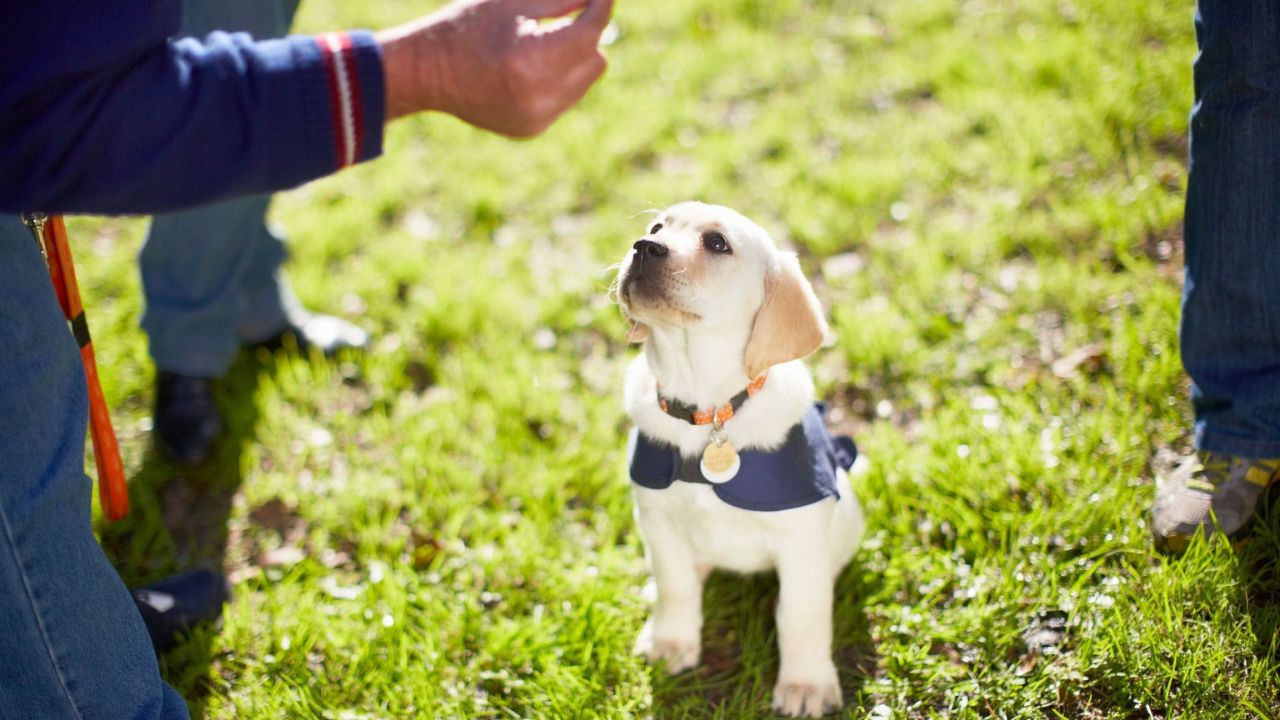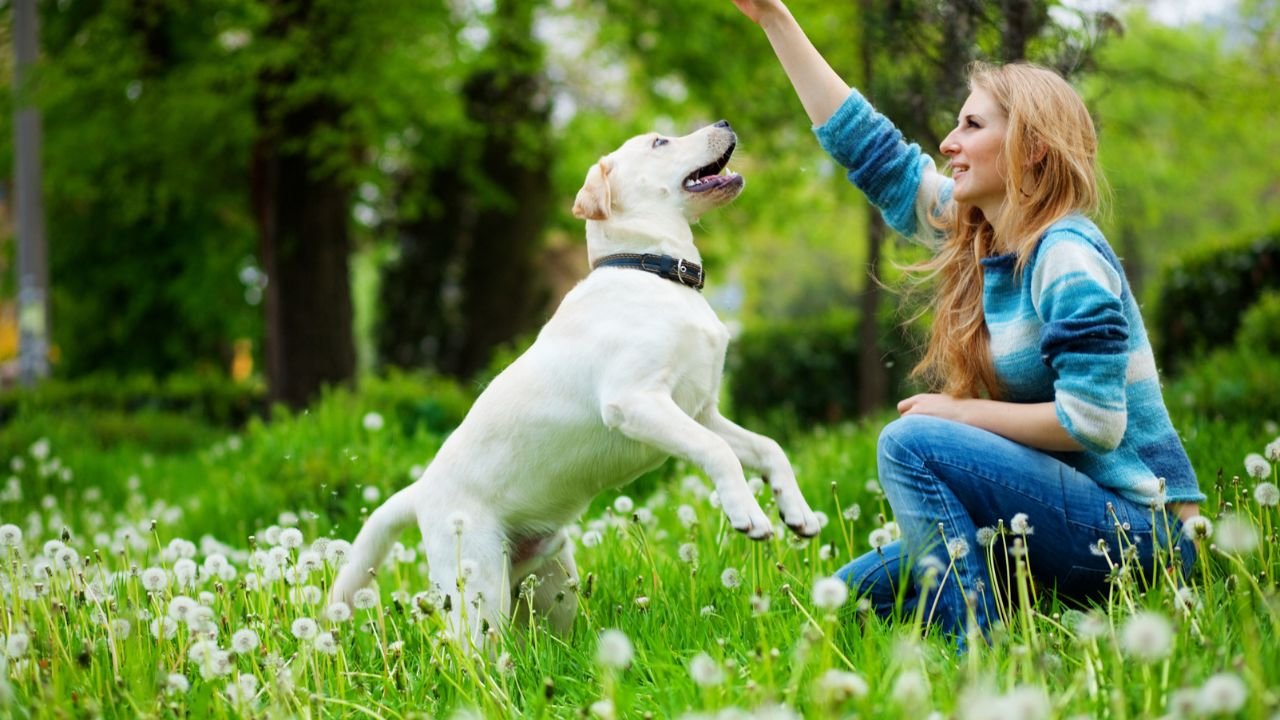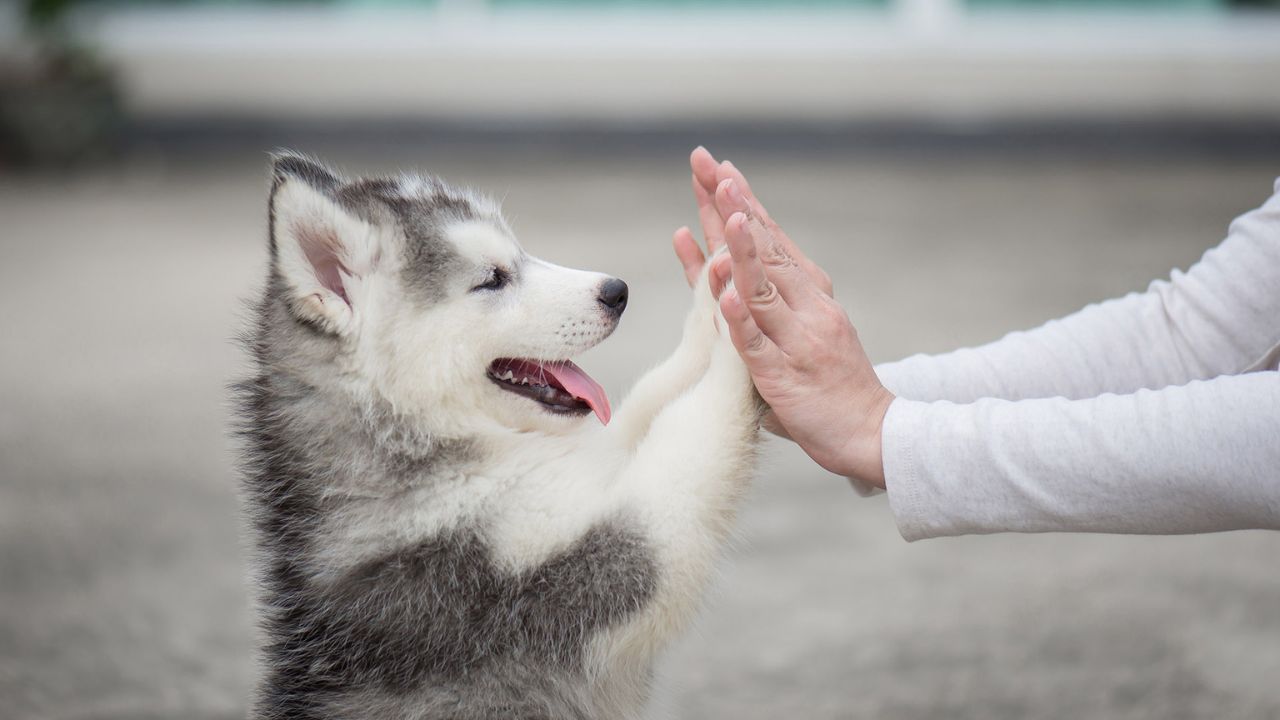With their wagging tails and boundless energy, puppies bring immense joy and love. However, being a puppy parent comes with responsibilities. In this guide, we’ll explore the essential steps to ensure that you, as a beginner, provide the best care for your furry friend.
Importance of Puppy Care
The importance of puppy care cannot be overstated, as it lays the foundation for a happy and healthy canine companion. Puppies are not just adorable bundles of fur; they are learning and growing beings that require careful attention to their physical and emotional well-being. Proper puppy care involves a balanced diet to support their rapid growth, regular veterinary check-ups, and vaccinations to ensure they lead a disease-free life.
Socialization is also crucial during the early months, shaping a pup’s behaviour and preventing future behavioural issues. Interactive play and training sessions mentally stimulate a well-rounded, intelligent dog.
Beyond the basics, grooming and hygiene practices instil good habits, promoting a clean and comfortable living environment for the pup and its owner. Investing time and effort into puppy care sets the stage for a lifelong bond and companionship, ensuring a happy, thriving four-legged family member.
Emotional Connection with a Pet
The bond between humans and their pets transcends the realms of mere companionship, evolving into a profound emotional connection that enriches lives in countless ways. Cultivating an emotional connection with a pet involves a reciprocal exchange of love, trust, and understanding.
Whether furry, feathery, or scaly, pets possess an innate ability to sense and respond to their owners’ emotions, offering solace during challenging times and celebrating joyous moments. This unique bond goes beyond words, fostering a deep sense of belonging and loyalty.
Studies have shown that the companionship of a pet can have therapeutic effects, reducing stress, anxiety, and loneliness. Pets’ unconditional love and acceptance create emotional support, promoting overall well-being.
As we care for our animal companions, we fulfil their physical needs and nurture a connection that enhances our mental and emotional resilience. The emotional connection with a pet is a testament to the extraordinary capacity for love within the hearts of humans and their beloved animal friends.
Preparing for a Puppy
Preparing for a puppy is an exciting yet crucial task that requires careful consideration and planning. The arrival of a new furry friend brings joy and companionship, but it also comes with responsibilities. To ensure a smooth transition for both you and your new pet, start by puppy-proofing your home. Remove potential hazards, secure electrical cords, and designate a safe space for your puppy to explore.
Invest in essential supplies such as a comfortable bed, nutritious puppy food, and appropriate toys to keep them engaged. Make an appointment with the veterinarian to receive immunizations. Deworming and a general health check-up. Establish a consistent feeding and potty training routine to instil good habits early on. Research and enrol in puppy training classes to foster positive behaviour and strengthen your bond.
Emotionally and physically, preparing for a puppy involves patience and dedication, but the rewards of a happy, well-adjusted canine companion make the effort worthwhile.
Researching Breeds
The journey of pet ownership begins with the crucial step of researching breeds. Understanding the unique traits, exercise needs, and temperament of different breeds ensures a harmonious match between owner and companion. Whether considering a playful pup or a calm companion, thorough research paves the way for a fulfilling and lasting bond.
Puppy-Proofing Your Home
How to Take Care of a Puppy for Beginners, welcoming a puppy into your home is an exciting adventure but comes with responsibilities. Ensure a safe environment by puppy-proofing your space. Secure loose cords, remove toxic plants, and invest in chew toys. Create a haven where your new companion can thrive, exploring without worry.
Necessary Supplies Checklist
Planning a successful event or project? Pay attention to the importance of a Necessary Supplies Checklist. Whether it’s a party, conference, or DIY project, this comprehensive list ensures all essentials are covered. From stationery to decorations, it’s your go-to guide for a seamless experience. Stay organized and stress-free with the Necessary Supplies Checklist at your fingertips.
Welcoming Your New Puppy

How to Take Care of a Puppy for Beginners, welcoming your new puppy into your home is an exciting and heartwarming experience. As you prepare to bring this furry bundle of joy into your life, there are a few key steps to ensure a smooth transition for you and your new companion. Begin by creating a cosy and safe space for your puppy with a comfortable bed and some favourite toys.
To adjust your puppy to their new surroundings, set up a regular schedule for playtime, potty breaks, and feeding. Introduce them to their surroundings gradually, allowing them to explore and become familiar with their new home. A strong bond with your new furry friend requires patience and positive reinforcement.
Remember to arrange a veterinarian visit for your pet’s annual physical and any required vaccinations. Following these steps, you’ll be well on your way to providing your new puppy with a caring and loving environment.
First-Day Essentials
Preparing for your first day? Remember the first-day essentials to ensure a smooth start. Comfortable attire, a notepad, and a positive attitude are must-haves. Pack a lunch or snacks for sustained energy. Bring any required documents and a smile – your best accessory. Be confident and embrace the new adventure with these essentials in tow.
Establishing a Routine
Establishing a routine is crucial for maintaining productivity and well-being. A well-defined daily schedule provides structure, reduces stress, and improves efficiency. Whether setting regular work hours, prioritizing self-care, or dedicating time to hobbies, creating a routine fosters discipline and balance. Consistency in daily habits leads to long-term success and a healthier, more fulfilling lifestyle.
Introducing to the Family
Welcoming a new member is always a joyous occasion. Whether it’s a bundle of joy or a furry friend, the introduction to the family brings warmth and excitement. Embracing change and creating lasting bonds, each addition contributes to the tapestry of love that defines a family. Cherishing these moments fosters a sense of unity and connection.
Health and Nutrition
How to Take Care of a Puppy for Beginners, prioritizing health and nutrition is essential for maintaining overall well-being. A balanced and nutrient-rich diet is pivotal in supporting our bodies and minds, contributing to increased energy levels, improved mental clarity, and enhanced immune function.
Health and nutrition go hand in hand, focusing on consuming foods that provide essential vitamins, minerals, and antioxidants. Incorporating diverse fruits, vegetables, whole grains, lean proteins, and good fats into our meals encourages the best possible health. Furthermore, maintaining proper hydration is essential for all body processes and can help with weight loss.
Frequent exercise lowers the risk of chronic diseases and promotes cardiovascular health and a healthy diet. By encouraging a holistic strategy for diet and wellness, individuals can embark on a journey towards a vibrant and fulfilling life. Making positive changes is always possible; start prioritizing health and nutrition today for a brighter and healthier tomorrow.
Choosing the Right Food: Selecting high-quality puppy food that suits their breed and size is crucial for their overall health and growth.
Regular Vet Check-Ups: Schedule regular veterinary check-ups to monitor your puppy’s health vaccinations and address any concerns promptly.
Common Health Concerns: Be aware of common health issues like fleas, ticks, and allergies, taking preventive measures to keep your puppy healthy.
Training Tips for Beginners: Puppy Edition

The journey of raising a puppy can be both exciting and challenging for beginners. Incorporating effective training tips is essential to ensure a smooth and positive experience.
Firstly, establish a consistent routine to help your puppy understand expectations. Consistency builds a sense of security, aiding in faster learning. Utilize positive reinforcement techniques such as treats, praise, and playtime to encourage desired behaviours. Patience is key; puppies, like humans, take time to grasp new concepts.
Socialization is another crucial aspect. Expose your puppy to various environments, people, and other dogs to foster a well-adjusted and confident pet. Basic commands like sit, stay, and come are fundamental and can be taught gradually using short, fun sessions.
Stay attuned to your puppy’s needs, promoting a strong bond. Remember, training is an ongoing process, and the key lies in creating a nurturing environment that fosters growth and development for your furry friend.
Basic Commands:
- Teach fundamental commands like sit.
- Stay.
- Come using positive reinforcement techniques.
Positive Reinforcement Reward good behaviour with treats and praise, reinforcing a positive association with obedience.
Consistency in Training: Consistent training builds trust and establishes a clear communication channel between you and your puppy.
Socialisation and Exercise
Socialization and exercise are crucial aspects of a puppy’s early development, setting the foundation for a happy and well-adjusted companion. Puppies, like humans, thrive on interaction and physical activity. Socialization exposes them to various environments, people, and other animals, promoting adaptability and reducing the likelihood of behavioural issues.
Structured exercise ensures a healthy physique and promotes mental stimulation, preventing boredom and destructive behaviour. A puppy’s early years are crucial for learning and creating good connections. Introducing your puppy to different experiences and environments enhances their confidence and helps build a resilient temperament.
Whether through playdates with other dogs or supervised interactions with people, socialization fosters positive relationships. Concurrently, regular exercise supports the physical well-being of your puppy, fostering a strong bond between you and your furry friend. By prioritizing socialization and exercise, you’re nurturing a healthy puppy and laying the groundwork for a lifelong companionship filled with joy and vitality.
Importance of Socialization: Expose your puppy to various people, environments, and other pets to promote positive social behaviour.
Safe Exposure to New Environments: Gradually introduce new places and experiences, ensuring a positive and non-threatening environment for your puppy.
Regular Exercise Routines: Regularly play and exercise to positively channel your puppy’s energy and maintain their overall well-being.
Grooming Guidelines
In pursuing a polished and put-together appearance, grooming guidelines serve as a crucial compass. These guidelines contribute to aesthetic appeal and are pivotal in nurturing mental and emotional well-being. From skincare routines to haircare rituals, adhering to grooming guidelines can enhance self-confidence and promote a positive self-image.
Effective grooming involves understanding individual needs, selecting appropriate products, and establishing consistent practices. Whether it’s the meticulous art of shaving or the science behind skincare, following these guidelines ensures external radiance and reflects an inner commitment to self-care. Additionally, grooming guidelines extend beyond physical appearance, emphasizing a healthy lifestyle.
Embracing grooming guidelines is not about conforming to societal standards but a journey towards self-respect and self-expression. By adopting these guidelines, individuals empower themselves to present their best selves to the world, embodying a harmonious balance of physical and mental well-being.
Brushing and Bathing: Establish a grooming routine, including brushing and occasional baths, to keep your puppy’s coat clean and healthy.
Nail Trimming: Regularly trim your puppy’s nails to prevent discomfort and potential health issues.
Dental Care: Start with appropriate chew toys and treats early to maintain good oral hygiene.
Handling Behavioral Issues
Handling behavioural issues is crucial to maintaining a positive and productive environment, whether in the workplace, school, or community. Addressing and managing behavioural problems effectively fosters healthy relationships and ensures a harmonious atmosphere.
One key strategy in handling behavioural issues is open communication. Establishing a clear line of communication allows for identifying underlying problems and promotes understanding between individuals involved. Additionally, setting clear expectations and boundaries helps prevent behavioural issues from arising in the first place.
Moreover, proactive measures, such as conflict resolution workshops or counselling services, can contribute to preventing and addressing behavioural issues before they escalate. It’s important to recognize that each situation is unique, and tailoring solutions to specific circumstances is vital.
Handling behavioural issues requires effective communication, clear expectations, and proactive measures. By taking a thoughtful and individualized approach, one can contribute to a healthier and more positive environment.
Puppy Behavior: Educate yourself on common puppy behaviours to differentiate normal antics from potential issues.
Addressing Common Problems: Implement positive reinforcement and redirect unwanted behaviours, addressing issues like chewing or excessive barking.
Seeking Professional Help if Needed: If behavioural problems persist, consider professional training to address specific concerns and ensure a well-adjusted puppy.
Travelling with Your Puppy

How to Take Care of a Puppy for Beginners, travelling with your puppy can be a delightful adventure, creating cherished memories for you and your furry friend. Before embarking on your journey:
- Ensure you’ve made the necessary preparations to make the experience safe and enjoyable.
- Start by securing a comfortable and well-ventilated pet carrier or harness for your puppy, providing security during transit.
- Plan frequent breaks to allow your puppy to stretch its legs, relieve itself, and stay hydrated.
- Pack essentials like food, water, toys, and familiar bedding to maintain a sense of routine.
- Make sure your pet has a fun trip by researching pet-friendly attractions and lodging at your destination.
- Acclimate your puppy to car rides gradually, making the journey a positive experience.
Travelling with your puppy becomes a bonding experience that strengthens your relationship while creating lasting memories on the road.
Preparing for Trips: Plan for travel, ensuring your puppy’s safety and comfort during journeys.
Safety Measures During Travel: Secure your puppy in a suitable carrier or harness and take breaks for water and bathroom breaks during longer trips.
Adjusting to New Environments: Help your puppy acclimate to new surroundings by maintaining familiar routines and providing familiar items.
Building a Strong Bond
Building a strong bond is essential in establishing meaningful connections, whether in personal relationships or professional collaborations. All parties must be willing to invest time, energy, and devotion in it. Communication, trust, and mutual understanding are the cornerstones of fostering a strong bond.
Open and honest communication builds trust, allowing individuals to express themselves and feel heard. Taking the time to understand each other’s perspectives and values strengthens the connection further.
In personal relationships, shared experiences and memories contribute to the depth of the bond. Celebrating successes and supporting each other through challenges creates a sense of solidarity. Teamwork, respect, and a shared vision are crucial for building a strong colleague bond in the professional realm.
Acknowledging each other’s strengths and contributions fosters a positive and collaborative work environment. Whether in personal or professional settings, building a strong bond requires continuous effort and a genuine commitment to the growth and well-being of the relationship.
Spending Quality Time: Dedicate time to play, cuddle, and build a strong bond with your puppy, fostering trust and affection.
Creating a Loving Environment: Provide a nurturing environment with positive reinforcement, creating a space where your puppy feels secure and loved.
The Role of Play in Bonding: Engage in interactive play to strengthen your connection and provide mental and physical stimulation.
Monitoring Growth and Development
How to Take Care of a Puppy for Beginners, monitoring growth and development is crucial to ensuring the well-being and success of individuals, organizations, and even communities. In various contexts, from child development to business expansion, tracking progress is key to making informed decisions.
In education, educators utilize continuous assessment and observation to monitor students’ academic and social growth, tailoring their teaching strategies accordingly. Similarly, businesses employ performance metrics and market analysis to gauge the success and potential areas for improvement. This proactive approach allows for timely interventions and adjustments to foster optimal growth.
Communities benefit from monitoring growth and development by assessing infrastructure needs, social dynamics, and environmental impact. By staying attuned to changes and trends, planners can ensure sustainable development and enhance the overall quality of life. Embracing a mindset of continuous monitoring facilitates adaptability, innovation, and the ability to navigate challenges, ultimately fostering growth on multiple fronts.
Tracking Milestones: Document your puppy’s growth, milestones, and changes in behaviour to address evolving needs.
Adapting Care as They Grow: Adjust feeding, exercise, and training routines to accommodate your puppy’s changing size and energy levels.
Recognizing Signs of Aging: As your puppy matures, be attentive to signs of ageing, adapting care to address potential health concerns.
Dealing with Emergencies
How to Take Care of a Puppy for Beginners, in life, unforeseen emergencies can strike any moment, challenging our ability to respond swiftly and effectively. Dealing with emergencies requires a combination of preparedness and calm under pressure. Firstly, cultivating awareness and preparedness for potential crises is key.
This involves creating emergency plans for different scenarios, such as natural disasters or accidents, and regularly practising drills with family or colleagues. Staying informed about local emergency protocols and resources is equally vital.
Maintaining a calm and collected demeanour is essential when an emergency occurs. Panicking can hinder clear thinking and decision-making. Assessing the situation objectively, prioritizing tasks, and communicating effectively with others are crucial steps in managing emergencies. When needed, seeking assistance from trained professionals or emergency services ensures a more efficient response.
In essence, dealing with emergencies is a skill that combines proactive preparation with the ability to stay composed in high-stress situations. By adopting a proactive mindset and honing the necessary skills, individuals can enhance their capacity to navigate and overcome unexpected challenges.
Creating an Emergency Plan:
Prepare for emergencies with a well-thought-out plan, including contact information for emergency veterinary care.
Recognizing Signs of Distress: Familiarize yourself with signs of distress and act promptly if your puppy exhibits unusual behaviour or symptoms.
First Aid for Common Issues: Learn basic first aid for common issues like cuts or minor injuries, ensuring you can provide immediate care when needed.
Connecting with Other Puppy Owners
How to Take Care of a Puppy for Beginners, owning a puppy is an exciting journey filled with joy and challenges, and connecting with other puppy owners can enhance this experience. Creating a community of like-minded individuals who share the joys and struggles of puppy parenthood can be invaluable. Socializing benefits your furry friend and provides a support system for you.
Online platforms and local puppy meet-ups offer opportunities to share tips, seek advice, and celebrate milestones. From training triumphs to navigating puppy teething, connecting with other owners helps create a sense of camaraderie. Sharing experiences and insights can make puppy-raising more enjoyable and less daunting.
Additionally, building connections with fellow puppy parents fosters a network for playdates, allowing your puppy to develop crucial social skills. As you navigate the world of puppyhood, remember that connecting with other owners creates lasting bonds beyond sharing adorable puppy pictures—they provide a lifeline in raising a happy and healthy pup.
Joining Local Pet Communities: Connect with fellow puppy owners through local groups or online communities, sharing experiences and advice.
Sharing Experiences and Advice: Learn from others’ experiences and share your own, building a support network and valuable insights.
Building a Support Network: Having a support network helps navigate challenges, providing guidance and reassurance during your puppy parenting journey.
Conclusion
How to Take Care of a Puppy for Beginners, caring for a puppy as a beginner requires dedication, knowledge, and much love. By following these guidelines, you’ll be on the path to fostering a happy, healthy, and well-behaved furry companion. Remember, the journey of puppy parenthood is a rewarding one that lasts a lifetime.
FAQ
What is The First Thing You Should Do with a Puppy?
How to Take Care of a Puppy for Beginners, the first thing you’ll need to do is puppy-proof your home and make sure it’s the perfect dog-friendly space, ensuring that anything harmful, such as cleaning products, cables and anything else they shouldn’t chew, is well out of paws’ reach!
Where Should a Puppy Sleep First Night?
How to Take Care of a Puppy for Beginners, a puppy should ideally sleep in a warm, quiet, and comfortable area on their first night. Many people choose to have the puppy sleep in a crate or a small enclosed area to provide security.
What Do Puppies Eat?
We recommend feeding your pup labelled puppy food until they are around a year old (or as advised by your vet) before moving them on to adult food. Your vet may recommend feeding a large or giant breed puppy food for over a year.
How Often Do Puppies Poop?
How to Take Care of a Puppy for Beginners, it is common for a puppy to defecate 5-6 times daily. A greater number will be removed even more frequently. The good news is that as the dog gets older, its pooping frequency will decrease. A 2-week-old puppy might poop after every meal, but by the time they are 12 weeks old, they might only be doing so four times a day.
How Do You Toilet Train a Dog?
Select an outdoor restroom area and make sure your puppy (while wearing a leash) always goes there. Use a word or phrase that you can eventually use before your puppy goes to relieve themselves while doing so to remind them of what to do. Once eliminated, take them for a longer walk or playtime.

